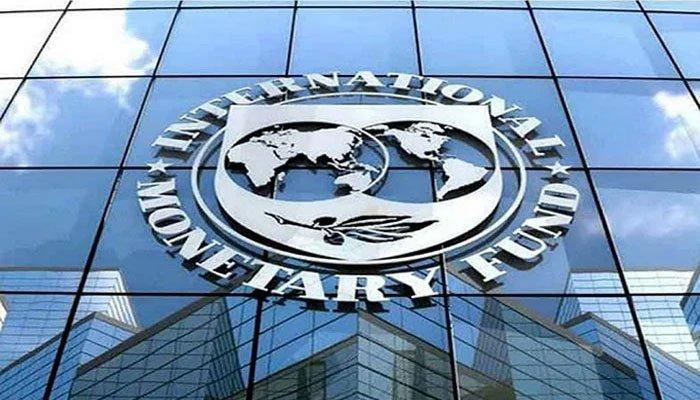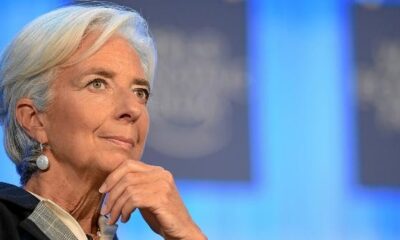Finance
“IMF arrives with wallet but also has a heart,” says new Fund chief

The new executive director of the International Monetary Fund, Kristalina Georgieva, gave her first public speech in her position and made reference to countries that have programs with the organization, such as Argentina. She said the IMF comes in “very desperate situations,” with a wallet, but with a brain and “a beating heart.
Georgieva, a Bulgarian economist, and sociologist who formally replaced Christine Lagarde on Oct. 1, delivered her message days before the IMF’s annual meeting, which begins next week in Washington, where finance ministers and central bank presidents from around the world, including Hernán Lacunza and Guido Sandleris, will meet.
The executive director gave a message about the global economic outlook, but in a later talk with Bloomberg editor Tom Keene, she referred to countries that have IMF programs, including Argentina.
“The Fund comes at a time when there are very desperate situations, there are risks, and it works with the country to reverse that moment. My country (Bulgaria) was one of them. Of course it’s hard, but we must think what would happen if the Fund were not there, what would be the devastation of a completely ruined economy, with no hope of being rebuilt. What I would like to do in countries with programs is what Christine Lagarde defined in her exit from the IMF: a wallet, a brain, but above all a beating heart.
Georgieva is well aware of the case of Argentina, as it will have to renegotiate the 57 billion loan it granted to the country, the largest in the history of the organization. As soon as she was voted by the executive board, the official met on Sept. 25 with Minister Lacunza, who was in Washington for negotiations on the standby loan. In fact, although with a protocol tone, it was the first meeting of his administration. Georgieva then told the minister that Argentina was at the top of the IMF’s priorities and that they would work together to understand the country’s economic and political difficulties.
In her public debut in her new position, Georgieva set the guidelines for the issues to be discussed at the annual meeting of the IMF and the World Bank, which will begin next week in Washington.
Georgieva said that two years ago the world economy was in a period of “synchronized boom”, since almost 75% of the world was in a phase of acceleration. However, he said the IMF predicts that by 2019, growth will slow in nearly 90 percent of the world. So, he said, “the world economy is now in a period of synchronized slowdown.
He explained that while unemployment in the United States and Germany is at an all-time low, advanced economies, including the United States, Japan, and, especially, the euro zone, are still seeing a moderation in economic activity.
“In some of the major emerging market economies, such as India and Brazil, the slowdown is even more pronounced this year,” he added. And he also noted that growth in China is gradually slowing from the rapid pace it has been for many years.
“In a trade war, everyone loses. For the global economy, the cumulative effect of trade conflicts could mean a loss of about US$ 700 billion by 2020, about 0.8% of GDP,” he said, urging world leaders: “We must work together now and find a lasting solution to trade.
The Bulgarian-born official added a personal note to her speech: “When it comes to improving people’s lives, hard work starts at home. I learned this lesson firsthand as I grew up behind the Iron Curtain. I was a witness, I felt the high cost of inappropriate policies,” she said. She explained what the IMF considers economic policy priorities that countries should adopt to achieve “more vigorous and resilient growth:
2) Use of fiscal tools. “Now is the time for countries with a margin in their budgets to make use of their fiscal capacity or prepare to do so,” he said. He warned that, in any case, in all countries, debt and deficit reduction must always be carried out in a way that protects education, health and employment.
3) Implement structural reforms for future growth. Georgieva mentioned the challenge of labor automation, anti-corruption legislation, reduction of bureaucracy, but also the empowerment of women as a structural change. He cited as an example the case of Chile, where childcare programs increased women’s participation in the labor force and stimulated economic activity.

-

 Companies1 month ago
Companies1 month ago“Volks-Sparkasse”: Joint branches in response to savings pressure
-

 Business1 month ago
Business1 month agoIndustrial workers improve work processes
-

 Business1 month ago
Business1 month agoRoad closures causing havoc to commuters
-

 Business1 month ago
Business1 month agoThe English millionaire who made history with a marathoner
-

 Business1 month ago
Business1 month agoNot to miss the vizcachazo
-

 Business1 month ago
Business1 month agoThe unsung hero of the 1920’s beauty industry
-

 Business1 month ago
Business1 month agoTo not be poor a family needs $ 34,784, 54.2% more than a year ago
-

 Business1 month ago
Business1 month agoChristine Lagarde in favors of a policy to support the economy
